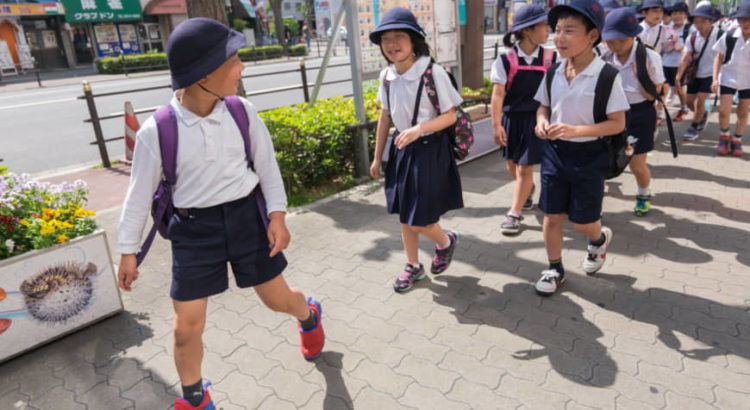Asia/ Japan/ 17.09.2019/ Source: www.japantimes.co.jp.
The Japanese economy has been suffering in part because of an aging population, resulting in an extreme shortage of young labor. To compensate, Japan has begun actively allowing in foreign workers. Government data released in April 2019 show that the number of resident foreigners hit a record high of 2.22 million, 1.76 percent of Japan’s population.
Has Japanese society welcomed these foreign workers with open arms? Not always. Shunsuke Tanabe, a Waseda University professor, explains that “many people in Japan think public security is getting worse as the number of foreign residents increases,” an attitude that leads some to discriminate against newcomers. Many foreigners living in Japan feel alienated, often experiencing verbal or even physical abuse. For example, according to a survey conducted by the Anti Racism Information Center in Tokyo, a human rights organization made up of scholars, students and NGO workers, 167 out of 340 foreigners, including students, claimed that they have suffered from discriminatory acts.
Why is this happening? Although education is not often discussed in connection with immigration, the roots of the problem lie in the secondary school system, which elicits and encourages this type of discriminatory behavior. The Japanese school system incorporates militaristic and conformist ethics and permits strong government control over education through textbook and curricula censorship. Regarding curricula, the education ministry controls all kindergarten through 12th grade educational material. Schools have to follow guidelines called Gakushu Shido Yoryo, which tell schools what and how to teach — and which also excludes comprehensive humanistic education about topics such as human rights. Through this strong control, the ministry works to shape obedient students who will easily conform to social norms, not only in schools but also in their supposedly homogeneous society.
The conformity that is encouraged in Japanese schools not only stifles uniqueness and personal expression among Japanese individuals, it helps shape a social consciousness that is suspicious of outsiders.
The Japanese school system is strictly education-focused rather than highlighting personality-building, and most schools from the junior high school level onward have unreasonably strict rules regarding appearance and behavior; students are regularly required to wear school uniforms and act in accordance with strict rules.
There are very specific guidelines designed to maintain a conservative appearance, such as keeping clean-cut hair with a natural black color, wearing only white shoes and socks, no makeup (although some schools allow natural makeup), no piercings and so on.
Some rules regarding appearance have already caused problems related to the increasing foreign population and to mixed children in Japan. For example, schools have tried to force children who do not have naturally black hair to dye their hair in an attempt to avoid standing out too much.
This seems a bit irrational; however, it is part of the education system’s way of maintaining uniformity and peace in order to avoid possible cultural dissent.
The conformist environment nurtured in the Japanese education system poses a direct challenge to immigrant or mixed students, but it also has a clear role in shaping the attitudes of Japanese adults in ways that are not conducive to creating a welcoming society for immigrants.
Another consequence of Japanese schools’ conformist tendencies is that many students who appear or act differently from the understood norm can become victims of severe ijime (bullying).
According to statistics from the education ministry, there were around 224,540 reports of school bullying in 2015-2016. Japanese students show collective and group-centric behavior in their ijime process, targeting victims because they are different in one way or another. These students might be new to the school, slower at doing things compared with others, prefer being alone (which is considered strange in the group-centric school system), disabled or ill, of mixed heritage or poor, for example.
Even Japanese students who return from living abroad can be victims of ijime. “According to one study,” says University of Adelaide professor Shoko Yoneyama, “two-thirds of 50 returnee children (kikokushijo) who responded to a survey indicated that they had been bullied because of their overseas experience — because of their English ability, lack of competence in Japanese, different manners, attitudes and ways of thinking.”
If Japanese students are so inclined to discriminate against Japanese who have merely lived abroad, this suggests challenges for their future behavior with respect to immigrants hoping to integrate into Japanese society.
If Japanese policymakers really want to successfully promote immigration, it will require reform of some of their most fundamental education institutions and practices, a dimension that receives too little attention in the current discourse.
While taking in foreign workers who will potentially become victims of discrimination, the government needs to implement policies that will reform the education system to prevent unfair treatment toward people of difference by softening the strict and militaristic rules and by teaching its people to embrace diversity instead of over-conformity in the secondary school system.
Source of the notice: https://www.japantimes.co.jp/opinion/2019/09/11/commentary/japan-commentary/create-immigrant-friendly-japan-start-education-reform/#.XX9kJygzbIV







 Users Today : 48
Users Today : 48 Total Users : 35403386
Total Users : 35403386 Views Today : 54
Views Today : 54 Total views : 3332680
Total views : 3332680